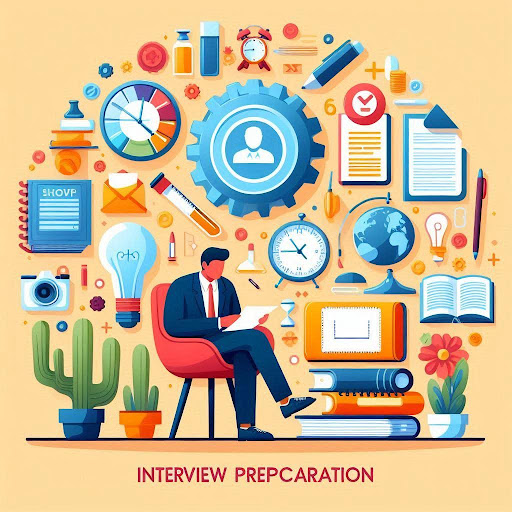Securing a scholarship can significantly aid in your educational journey, but the process can be competitive. After submitting a compelling application, the next crucial step is often an interview. Excelling in a scholarship interview requires thorough preparation and confidence. This guide provides valuable tips and strategies to help you prepare effectively and make a strong impression on the interviewers.
1. Understand the Scholarship’s Objectives
1.1 Research the Scholarship Provider
– Learn about the organization or institution offering the scholarship. Understand their mission, values, and what they seek in candidates.
– Visit their official website, read about previous recipients, and explore any available resources or publications.
1.2 Know the Scholarship’s Criteria
– Review the scholarship criteria and selection process. Understand the qualities and achievements that the scholarship emphasizes.
– Align your answers to demonstrate how you meet or exceed these criteria.
2. Reflect on Your Application
2.1 Review Your Personal Statement and Resume
– Revisit your application materials, including your personal statement, resume, and any essays you submitted. Be prepared to discuss any details you provided.
– Identify key points and experiences that highlight your strengths and align with the scholarship’s objectives.
2.2 Prepare to Discuss Your Achievements
– Be ready to elaborate on your academic achievements, extracurricular activities, work experiences, and personal projects.
– Use specific examples to illustrate your accomplishments and skills.
3. Anticipate Common Interview Questions
3.1 General Questions
– Tell us about yourself.
– What are your academic and career goals?
– Why did you choose this field of study?
– Why are you applying for this scholarship?
3.2 Academic and Extracurricular Questions
– Describe a challenging academic project you completed.
– How do you balance your academic responsibilities with extracurricular activities?
– What leadership roles have you taken on, and what did you learn from them?
3.3 Personal and Motivational Questions
– What motivates you to succeed?
– How have you overcome significant challenges or obstacles?
– How will this scholarship help you achieve your goals?
3.4 Questions About the Scholarship Provider
– Why do you want to be associated with our organization?
– How will you contribute to our community or cause if you receive this scholarship?
3.5 Hypothetical and Behavioral Questions
– Describe a time when you worked in a team to achieve a goal.
– How do you handle failure or criticism?
– What would you do if you faced an ethical dilemma?
4. Prepare Your Answers
4.1 Use the STAR Method
– Structure your answers using the STAR method (Situation, Task, Action, Result) to provide clear and concise responses.
Situation: Describe the context within which you performed a task or faced a challenge.
Task: Explain the actual task or challenge involved.
Action: Detail the specific actions you took to address the task or challenge.
Result: Share the outcomes or results of your actions, emphasizing your achievements and learning experiences.
4.2 Practice Aloud
– Practice answering questions aloud to become comfortable with your responses and improve your verbal communication skills.
– Conduct mock interviews with a friend, mentor, or career counselor to get feedback and refine your answers.
5. Plan Your Logistics
5.1 Understand the Format
– Determine whether the interview will be in-person, over the phone, or via video conferencing. Each format has its own set of considerations and preparation strategies.
5.2 Dress Appropriately
– Dress professionally, even if the interview is conducted virtually. Your appearance contributes to the overall impression you make.
5.3 Ensure a Suitable Environment
– Choose a quiet, well-lit location for virtual interviews. Ensure that your background is clean and free from distractions.
– Test your technology (camera, microphone, internet connection) beforehand to avoid technical issues.
6. Prepare Questions for the Interviewers
6.1 Show Genuine Interest
– Prepare thoughtful questions to ask the interviewers about the scholarship, the organization, and potential opportunities for scholars.
– Examples of good questions include:
– Can you tell me more about the community of scholars who have received this award?
– What opportunities for professional development does the scholarship provide?
– How can scholars contribute to the organization’s mission?
6.2 Avoid Generic Questions
– Avoid asking questions that are easily answered through a basic search of the scholarship provider’s website. Show that you’ve done your homework and are genuinely interested.
7. Follow Up
7.1 Send a Thank-You Note
– Send a thank-you email to the interviewers within 24 hours of the interview. Express your gratitude for the opportunity to interview and reiterate your enthusiasm for the scholarship.
– Mention specific points from the interview to personalize your note and reinforce your interest.
Thorough preparation is key to excelling in a scholarship interview. By understanding the scholarship’s objectives, reflecting on your application, anticipating common questions, and preparing thoughtful answers, you can present yourself confidently and effectively. Planning your logistics, dressing appropriately, and asking insightful questions further demonstrate your professionalism and genuine interest. Following up with a thank-you note can leave a positive impression. With these strategies, you can maximize your chances of securing the scholarship and taking a significant step toward achieving your educational and career goals.



